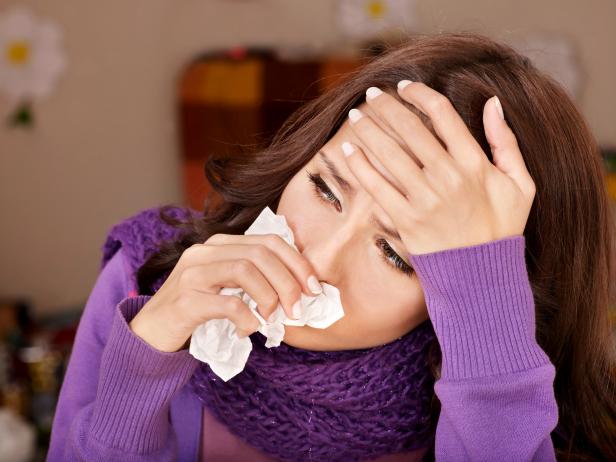Mold allergy symptoms
Do your allergies seem to get worse when it rains? If so, you may be suffering from a mold allergy. Mold allergies are generally not life threatening. However, they can impact your ability to lead a productive and comfortable daily life.
Here are a few tips to help you spot mold allergies.
The primary allergen in mold is the mold spore. Because these spores can eventually make their way into the air, they can also make their way into your nose. This triggers an allergic reaction. This mold has been linked to allergies and asthma.
Mold is a type of fungus that grows in moisture, either indoors or outdoors. While the mold spores constantly floating in the air can trigger reactions, the problem worsens when these spores attach to a wet surface and mold begins to grow.
You may have mold growing inside your house and not know it. This could happen for a variety of reasons, including:
- unknown leak from the roof or plumbing
- moisture buildup in a basement
- damp areas under a carpet that haven’t been noticed
Because mold grows year-round, mold allergies generally aren’t seasonal like other allergies. Although those who are allergic to mold typically do have more symptoms from midsummer to early fall, they can experience symptoms any time they’re exposed to mold spores, especially if they live in an area that tends to get a lot of rain.
Basic symptoms of mold allergies
If you’re allergic to mold, you’ll likely experience histamine-mediated reactions similar to those from other types of airborne allergies. Those symptoms include:
- sneezing
- coughing
- congestion
- watery and itchy eyes
- postnasal drip
You may initially mistake your mold allergies for a cold or sinus infection, since the symptoms can mirror each other.
If your allergies are compounded by asthma, you may notice your asthma symptoms getting worse when you’re exposed to mold. Symptoms of asthma include:
-
coughing
- difficulty breathing
- chest tightness
You also may experience wheezing and other signs of an asthma attack.
Mold allergies in children
If your children are the only ones in the family with histamine-related allergy symptoms, it could just be that your child has a sensitivity to mold, whereas no one else in the family does.
Or it may not be related to mold that’s in your home but elsewhere:
- Some school buildings have unchecked mold, which can result in increased attacks while children are at school.
- Since some children spend time playing outside in areas where parents might not venture, the source of mold exposure for children may be in the outdoor air. Children with asthma may experience more attacks while playing outside for this reason.
- You may notice more symptoms in the summertime months when your children are playing outside more often.
Is mold toxic?
You may hear myths about the toxicity of mold. For example, some believe that inhaling mold can cause permanent damage.
The truth is that it would be very difficult for someone to inhale enough mold to do that kind of damage.
If you aren’t sensitive to mold, you may never even experience a reaction. Furthermore, the mold often associated with asthma is generally found outdoors, not indoors. So that leaky window at work isn’t likely to cause you to develop asthma.
Outdoor mold only makes symptoms worse for people who already have asthma; it doesn’t cause asthma.
However, a condition called hypersensitivity pneumonitis has been attributed to prolonged mold inhalation. The condition is serious, but it’s also rare.
Hypersensitivity pneumonitis
Hypersensitivity pneumonitis (HP) can develop over time in people who are sensitive to mold spores in the air. One of the most common types of HP is known as “farmer’s lung.” Farmer’s lung is a serious allergic reaction to the mold that’s found in hay and other types of crop material.
Because farmer’s lung is so often undiagnosed, it can cause permanent damage in the form of scar tissue on the lung. This scar tissue, called fibrosis, can worsen to the point where the person begins to have trouble breathing when doing simple tasks.
Once farmer’s lung progresses to a more chronic form, symptoms may become more severe than simple histamine reactions. People with farmer’s lung may experience:
- shortness of breath
- fever
- chills
- blood-tinged sputum
- muscular pain
Those who work around potentially moldy crop materials on a regular basis should watch for early histamine reactions and seek treatment if they suspect that farmer’s lung is developing.
What’s the outlook?
While mold exposure is generally not deadly, increased exposure can make symptoms worse.
Mold allergies are progressive. Over time, the attacks become more severe.
The key is to prevent moisture from building up by repairing any leaks. If you notice a water buildup in any part of your home, stop the leak immediately.
You can prevent mold buildup by regularly washing the garbage cans in your kitchen. You can also use a dehumidifier throughout your home.
When working in situations where outdoor mold may be present, wearing a face mask can drastically reduce your exposure to the allergen. Masks that protect your respiratory system from being affected by mold spore exposure are available.





